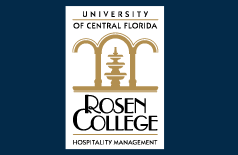
Event Title
Parallel Session 14, Events and Festival Planning Track: Threats to Safeguarding Cultural Festivals in Macao
Location
Classroom 207
Start Date
14-12-2017 12:45 PM
End Date
14-12-2017 1:10 PM
Description
Purpose
Despite the social benefits of cultural festivals, they are extremely vital to Macao's singular economy, in which the government has positioned Macao as the ‘World Centre for Tourism and Leisure' with festivals and events being a significant component of touristic offering. Using the principles of UNESCO's ‘Convention for the safeguarding of the Intangible Cultural Heritage' development, this paper problematizes and discusses the different threats to safeguarding cultural festivals in Macao and possible mitigating actions, particularly through implementing public policies.
Design/methodology/approach
An autoethnographic approach is adopted to guide the discussion; specifically, field notes, reflections and photographic records are used extensively to elaborate and justify these threats to cultural festivals in Macao. In addition, previous research and mass media reports are also consulted.
Findings
Socio-economic issues dominate the main threats to safeguarding cultural festivals. Unprecedented economic developments, globalisation and demographical features were the main issues. This paper highlights the deficiency of the Convention when applied in the case and context of Macao festivals.
Research limitations/implications
This paper is conceptual in nature and lacks empirical data to support the conclusions drawn from the discussions. However, it advances the current discourse in event studies and cultural heritage management about cultural festivals, particularly in destinations which are focused on exploiting the benefits but lack a long-term vision of survival issues.
Practical implications
While their effort in promoting and safeguarding the authenticity of cultural festivals for residents and tourists, government entities such as the tourism bureau and cultural heritage office need to be aware of survival threats to cultural festivals in the long-run. This paper provides a blueprint for further research and support for immediate attention to the future of cultural festivals.
Originality/value
This paper raises further questions that it answered; it is a result of discourses in event and heritage studies, two very distinctive but interrelated fields. It furthers the discourse of safeguarding intangible cultural heritage, particularly in cultural festivals. Although this paper uses Macao as a case, the research and practical implications are reminiscent in other destinations similar to Macao's features such as a small, post-colonial, tourism-dependent destination undergoing rapid economic development.
Parallel Session 14, Events and Festival Planning Track: Threats to Safeguarding Cultural Festivals in Macao
Classroom 207
Purpose
Despite the social benefits of cultural festivals, they are extremely vital to Macao's singular economy, in which the government has positioned Macao as the ‘World Centre for Tourism and Leisure' with festivals and events being a significant component of touristic offering. Using the principles of UNESCO's ‘Convention for the safeguarding of the Intangible Cultural Heritage' development, this paper problematizes and discusses the different threats to safeguarding cultural festivals in Macao and possible mitigating actions, particularly through implementing public policies.
Design/methodology/approach
An autoethnographic approach is adopted to guide the discussion; specifically, field notes, reflections and photographic records are used extensively to elaborate and justify these threats to cultural festivals in Macao. In addition, previous research and mass media reports are also consulted.
Findings
Socio-economic issues dominate the main threats to safeguarding cultural festivals. Unprecedented economic developments, globalisation and demographical features were the main issues. This paper highlights the deficiency of the Convention when applied in the case and context of Macao festivals.
Research limitations/implications
This paper is conceptual in nature and lacks empirical data to support the conclusions drawn from the discussions. However, it advances the current discourse in event studies and cultural heritage management about cultural festivals, particularly in destinations which are focused on exploiting the benefits but lack a long-term vision of survival issues.
Practical implications
While their effort in promoting and safeguarding the authenticity of cultural festivals for residents and tourists, government entities such as the tourism bureau and cultural heritage office need to be aware of survival threats to cultural festivals in the long-run. This paper provides a blueprint for further research and support for immediate attention to the future of cultural festivals.
Originality/value
This paper raises further questions that it answered; it is a result of discourses in event and heritage studies, two very distinctive but interrelated fields. It furthers the discourse of safeguarding intangible cultural heritage, particularly in cultural festivals. Although this paper uses Macao as a case, the research and practical implications are reminiscent in other destinations similar to Macao's features such as a small, post-colonial, tourism-dependent destination undergoing rapid economic development.


